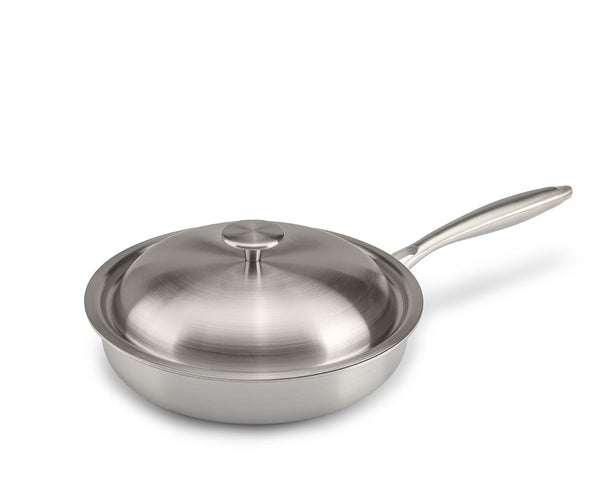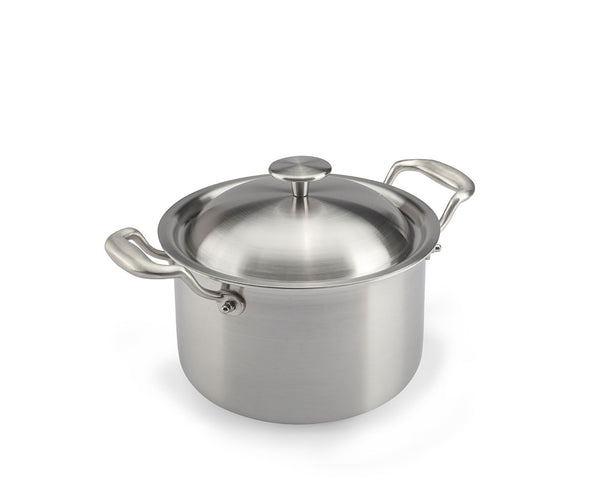We have often been asked: why did you choose titanium for the cooking surface of your pots?
And we give two fundamental reasons: titanium is not only a metal very resistant to corrosion, thus less sensitive to attack by acidic foods compared to all other metals used to produce cookware, but it is also a non-toxic and biocompatible metal, therefore free of any harmful effect on health.
But what does biocompatible mean?
Biocompatibility refers to the 'harmony' between a material or substance and a living organism, thus to the ability of such material or substance to be well tolerated and metabolized without producing harmful effects on vital functions.
This concept was first used in the medical-surgical literature, referring to the acceptance of an artificial implant by the surrounding tissues and by the internal organism.
Biocompatibility is precisely the characteristic that has made titanium the material par excellence when it comes to orthopedic surgery and dental implantology.
The discovery of biocompatibility
The discovery of titanium's biocompatibility dates back to the 1950s when a Swedish orthopedic surgeon named Per-Ingvar Brånemark, studying blood microcirculation and tissue oxygenation, realized that the titanium instruments he used to firmly hold his experimental devices in place had been successfully osseointegrated with animal bone. In short: the bone had literally fused with the titanium, forming a solid and lasting bond.
Starting from this surprising discovery, Brånemark began experimenting with the use of titanium as a material for dental prostheses and, subsequently, for orthopedic prostheses. His studies demonstrated that titanium is able to successfully integrate with human tissues without causing any adverse reaction.
Until a few years ago, however, the biocompatibility of titanium had only been demonstrated empirically, through evidence derived from the use of titanium by surgery for dental prostheses and implants.
The recent study
But just recently some researchers from TOKYO MEDICAL AND DENTAL UNIVERSITY (Tmdu) managed to demonstrate what gives titanium implants their extraordinary biocompatibility.
This is explained in an article published in May 2022 in the journal ‘Science and technology of advanced materials’ reporting the results of a scientific experiment. Thin titanium discs were immersed in a solution with a composition similar to plasma and interstitial fluid. Using sophisticated photoelectrochemical measurement techniques and X-ray photoelectron spectroscopy, they observed that it is the ability of this metal to react with ions present in the extracellular fluid that allows the human body to “recognize” it, not activating any type of immune response. According to the Japanese researchers, this work could stimulate new insights in the literature, leading to a new generation of medical implants with even greater durability and efficiency than current ones.
The very use in surgery for prostheses and implants is therefore the confirmation of titanium's very low toxicity and the reason why we at Tritania thought, first among cookware manufacturers, to bring it into the kitchen.
Since the web is full of conflicting opinions about the danger of almost everything that doctors and dentists use for rehabilitation and treatments, you will certainly also find the opinion of someone who considers titanium dangerous. However, we relied on data published in the most authoritative scientific journals.
The comparison must then be made with other materials on the market: perhaps the perfect material does not exist, but there is one superior to others in terms of the release of potentially harmful substances.
We believe that titanium can be, obviously among those available and sustainable.
Let's not forget that cooking food puts the durability of the materials used to make pots to the test, both due to the chemical action of the ingredients (especially acidic ones like tomato) and the high temperature, and finally also the mechanical action of kitchen utensils.





